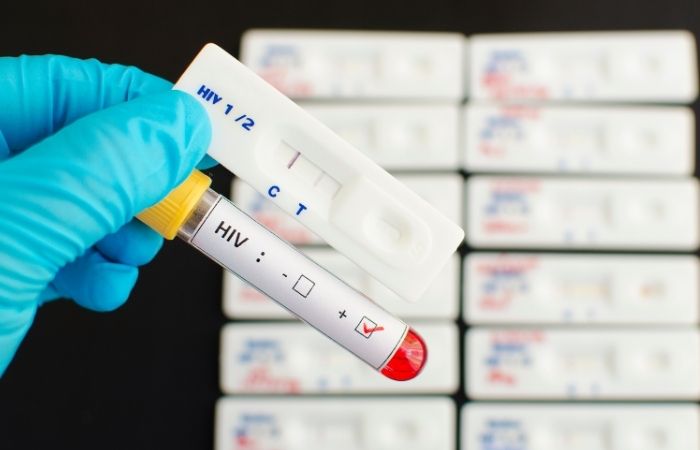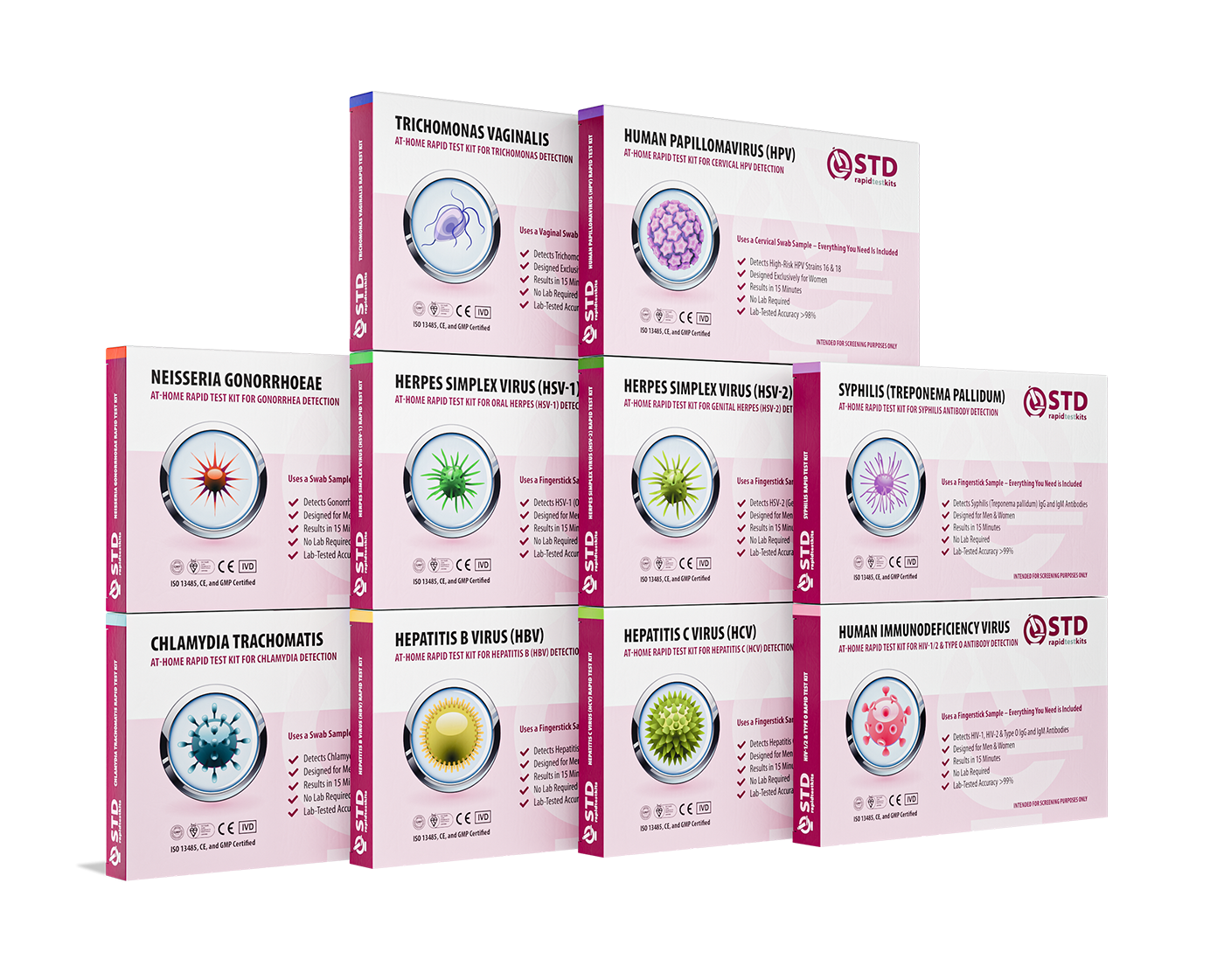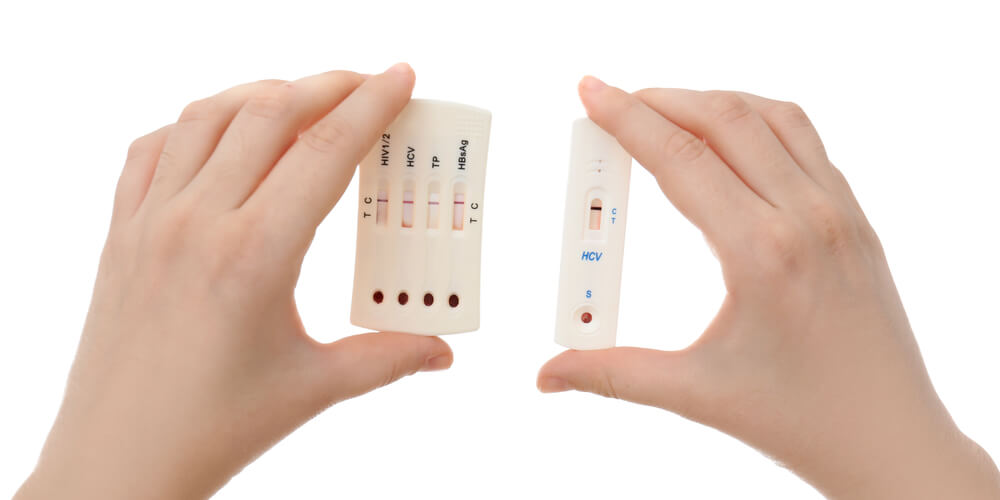Tested Negative for Chlamydia? You Might Still Have It in Your Throat
Quick Answer Box
A negative STD test result doesn't always guarantee you're free from infection. Testing too soon after exposure can lead to false negatives due to the "window period", the time between exposure and when a test can reliably detect an infection. Regular testing and understanding these windows are crucial for accurate results.
The Window Period: Timing Is Everything
The "window period" refers to the time between potential exposure to an STD and the point when a test can accurately detect the infection. During this period, the body may not have produced enough antibodies or the pathogen may not be present in detectable quantities, leading to false-negative results.
For example:
- Chlamydia and Gonorrhea: Typically detectable within 2 weeks post-exposure.
- HIV: Depending on the test type, it can take anywhere from 10 to 90 days to detect the virus.
- Syphilis: May take up to 12 weeks to be detectable.
Testing during the window period can provide a misleading sense of security. It's essential to wait the recommended time after potential exposure before testing to ensure accurate results.

People are also looking for: Can I test too soon?
False Negatives: When “Clean” Means Missed
False negatives happen more often than we like to admit. Maybe the swab missed the infected area. Maybe the test wasn’t sensitive enough. Or maybe, and this is disturbingly common, the test never looked for it in the first place. Here are common reasons why “clean” doesn’t mean cleared:
- Site-specific testing was skipped: No throat or rectal swabs? You might have oral or rectal chlamydia with a negative genital test.
- Wrong test type was used: Some clinics only check for HIV and syphilis, leaving gonorrhea, chlamydia, trichomoniasis, and HPV out.
- Self-reporting errors: Many patients don’t realize they need to ask for full panels or disclose all sexual practices to get properly tested.
- Too-early testing: You tested during the window period, so your results looked negative, but the infection was still developing.
Reinfection Is Real, Even With the “Clean” People
Here’s another twist: reinfection is rampant, especially with chlamydia and gonorrhea. You can get treated, test negative, feel fine, and then catch it again from a partner who never got tested or never told you they tested too soon. In relationships, this can blow up fast.
Someone gets diagnosed, their partner claims they’ve been monogamous, and the next thing you know, people are accusing each other of cheating. But sometimes it’s not infidelity, it’s incomplete testing, or the delay between exposure and detection. So what looks like betrayal might actually be biology.
If your partner got tested “last month” but had a new encounter right after, their test result says nothing about today. If they got treated but didn’t abstain for seven days after starting antibiotics, they could still pass the infection back to you. STD prevention isn’t just about honesty, it’s about timing, repetition, and coverage.
Order Now $129.00 $343.00 Check Your STD Status in Minutes
Test at Home with Remedium
7-in-1 STD Test Kit




For all 7 tests
Hookup Culture, Testing, and the Illusion of Safety
In the age of dating apps, spontaneous sex, and screenshot receipts of test results, “clean” has become a kind of sexual currency. You show someone your negative test and it's like flashing a badge of honor, see? I’m safe. I’m responsible. You can trust me. But that’s the trap. Because a lot of those screenshots are from tests that:
- Were taken too soon after exposure
- Only screened for a couple of infections
- Didn't include oral, rectal, or site-specific swabs
- Were from a clinic that doesn’t test for everything unless requested
And so what happens? Two people have “clean” results, ditch the condom, have oral or anal sex, and weeks later, boom. One has chlamydia. Or gonorrhea. Or syphilis. And everyone’s confused, hurt, and scrambling for answers. It’s not about blame. It’s about false security wrapped in medical paperwork. And the way hookup culture has made testing part of foreplay, but skipped the fine print.
“I showed him my results, he showed me his, and we both felt safe,” says Nina, 28, from Berlin. “But he got tested five days after sleeping with someone new. We thought we were being responsible, but we were just being fast.”

People are also looking for: If I had touched another person in skin-to-skin contact before I masturbated, can that be dangerous?
Building a Real Testing Routine (That Doesn’t Lie to You)
So how do you protect yourself without becoming a paranoid mess? You build a routine, not a reaction. Here’s what that means:
- Test every 3–6 months if you’re sexually active, or more often if you have new or multiple partners.
- Wait the correct window period after risky sex before testing, especially if you plan to share results with a partner.
- Ask for full-panel tests, including throat and rectal swabs if you’ve had oral or anal sex.
- Use discreet, at-home options when convenience or privacy matters, like STD Rapid Test Kits, which let you screen without shame.
- Test together with your partner if you're planning to stop using protection. That way, you're both accountable to the same timeline.
While receiving a negative STD test result can be reassuring, it's crucial to understand the nuances of testing, including window periods and the potential for false negatives. Regular testing, informed timing, and open communication are key components of responsible sexual health practices. Stay proactive. Stay informed. Protect yourself and your partners.
Check Your STD Status in Minutes
Test at Home with Remedium10-in-1 STD Test Kit

 For Women
For Women Results in Minutes
Results in Minutes No Lab Needed
No Lab Needed Private & Discreet
Private & DiscreetOrder Now $189.00 $490.00
For all 10 tests
FAQs
1. Is a negative STD test ever incorrect?
Yes. If you get tested too early after you've been infected, or test the wrong region (such as your throat or rectum), you'll get a negative result even though you are infected. This is known as a false negative, and it's more common than you'd think.
2. How long must I wait after having sex to be tested?
It varies with the infection:
- Chlamydia & Gonorrhea: Get tested 1–2 weeks after exposure
- Syphilis: Screen after 3–6 weeks
- HIV: 10 days to 3 months (based on the type of test)
- Hepatitis B & C: 4–12 weeks
If uncertain, attempt now and also later on to be sure.
3. What does "clean" even mean?
Honestly? Nothing. "Clean" is a loaded, stigmatizing term. Preferably: "I tested negative for these particular infections on this date." That's both more precise and more respectful.
4. Do I need to test again if I've had sex since my last test?
Yes. A negative test is only a snapshot in time. If you have had new partners or unprotected sex since then, your risk profile is different.
5. Is it safe to discontinue condom use if the two of you are negative?
Just if:
- Both of you tested after the window period.
- Both had full-panel tests,
- You haven't had any new partners since.
- You both stay monogamous or agree to retest regularly if you’re open.
6. Can I contract an STD from someone who recently tested negative?
Yes, if they were tested too soon, not tested for all the STDs, or reinfected after they were tested.
7. Why don't clinics just test for everything automatically?
Time, cost, and assumptions. A few testers only test for what appears to be necessary based on your symptoms or behaviors you've described, so unless you ask for it, they may omit oral, rectal, or less common STDs such as trichomoniasis.
8. What if I would rather have testing without going to a clinic?
Test in the privacy of your own home with STD Rapid Test Kits.
9. Is repeat testing overkill?
No. It's intelligent. STDs are prevalent, curable, and usually undetectable. Getting tested regularly is like brushing your teeth, it will keep both you and your partners protected.
10. Can I trust my partner's "clean" test?
Trust but confirm. Ask them: When did they get tested? What did it test for? Was it before or after their recent partner? You are not being suspicious. You are being accountable.
"Clean" Is a Vibe, Not a Diagnosis
If there is one thing you can take away from all this, it's the following: a test result is only as good as its timing, its scope, and its honesty. We have to quit throwing the word "clean" around like it's a synonym for untouchable. You can be respectful, honest, and deserving of care and carry an STD, and you can have a negative test and still transmit.
So if someone presents a result to you, don't simply agree. Ask when. Ask what was included. Ask whether they've had sex since. Because safety does not lie in forms, but in knowing the limits of testing, and in doing it often.
Sources
1. CDC – Understanding STD Test Results










